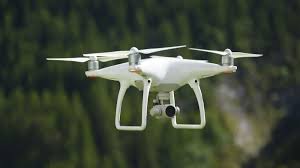In a significant move aimed at regulating drone usage across the country, the Civil Aviation Authority (CAA) has introduced a mandatory registration policy for drone cameras. This policy, unveiled recently, marks a pivotal step in ensuring safety and accountability in the burgeoning field of drone technology within Pakistan.
Under the new regulations, all drone owners are required to register their devices with the Civil Aviation Authority within the next four months. This initiative aims to streamline and monitor the proliferation of drones across various sectors, including commercial and recreational use.
One of the key provisions of the policy includes the issuance of remote pilot licenses to drone operators. This measure is designed to ensure that those handling drone cameras are adequately trained and certified, thereby enhancing operational safety standards.
Drones have been categorized into four distinct classes based on their weight, each category subjected to specific regulatory requirements. This classification is pivotal in determining the licensing and operational guidelines applicable to each drone class.
Moreover, the policy outlines that licenses for importing and exporting drone cameras will have a validity period of up to three years, ensuring continued compliance with evolving regulatory frameworks.
Emphasizing national security concerns, the Ministry of Defense has strictly prohibited drones from flying in restricted areas such as border zones and locations requiring special clearance. This restriction underscores the government’s commitment to safeguarding sensitive airspace and national interests.
In line with safety protocols, drone operators must promptly report any accidents involving drones to civil aviation authorities. This reporting mechanism is crucial for swift response and mitigation of potential risks associated with drone operations.
To enforce these regulations effectively, civil aviation inspectors will conduct regular inspections of drones to ensure adherence to safety protocols and operational standards. Stringent actions are stipulated against individuals found violating these regulations, including flying drones without proper clearance or within a 6-kilometer radius of airports, where operation is expressly prohibited.
The implementation of this comprehensive drone registration policy reflects Pakistan’s proactive approach towards harnessing the benefits of drone technology while prioritizing safety and regulatory compliance. As the drone industry continues to evolve, these measures are poised to foster a secure and conducive environment for drone operations nationwide.












